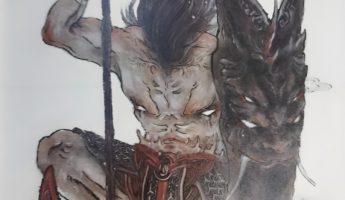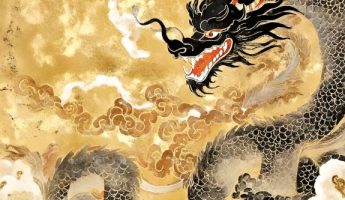More than 4000 years ago, there were numerous tribal clans scattered throughout the Yellow River and Yangtze River basins in China, with the middle reaches of the Yellow River and the lower reaches of the Fen River being particularly dense, with tens of thousands of tribes. On this vast land, the three major tribes are particularly prominent: the descendants of the Shennong clan, known for their peace; The brave Jiuli tribe, led by Chiyou, is similar in appearance to oxen and hooves, with copper heads and iron foreheads. Its 81 brothers are exceptionally brave, skilled in making weapons, and often harass surrounding tribes; And there was the Xiong tribe, led by Xuanyuan (later known as Huangdi), who was kind and wise. Although he rose late, he quickly became an undeniable force.
Due to the subtle geographical location, Xuan Yuan was concerned that future warfare might be attacked from both sides, so he took the initiative and defeated the Shennong tribe in the Battle of Hankou, unifying the Central Plains. At the same time, Chiyou had ambitious plans to expand in the south, intending to conquer the north. However, the rise of the Yan tribe became a stumbling block for him, and Chiyou defeated him, forcing him to flee north and seek help from the Yellow Emperor.
Although Huangdi was tired of war, he still attempted to resolve disputes through peace talks but was unsuccessful. Faced with Chiyou’s provocation, Huangdi decided to unite with Emperor Yan to confront him in the wilderness of Zhuolu. The two sides were evenly matched, and during the intense battle, Chiyou used the mist technique to create a heavy fog on the battlefield, causing the Yellow Emperor’s troops to lose their direction and suffer a defeat in the first battle. Subsequently, after being defeated by the Yellow Emperor’s troops, they invented the Compass carriage to guide the direction and help the Yellow Emperor’s army regroup.
Chiyou was unwilling to show weakness and invited the Wind God and Rain God to help. Amidst the wind and rain, the Yellow Emperor’s army once again fell into a difficult situation. At a critical moment, Huangdi summoned the drought demon to stop the rain, and used the cow and sheep horn flute to dispel the evil spirits summoned by Chiyou, reversing the situation of the war. Chiyou once again transformed into three heads and six arms, while Huangdi summoned Yinglong to participate in the battle. Although he was temporarily defeated, Huangdi later received the help of Xuannu and was given a sword and formation. In the end, he trapped Chiyou’s reinforcements and the Kuafu tribe, and personally killed Chiyou with the Xuan Yuan sword.
After the war, the Jiuli tribe disintegrated and the remnants migrated south, becoming the ancestors of the Miao ethnic group. Although the Yellow Emperor executed Chiyou, he still felt his bravery and martial arts, and revered him as the “master of the army”, inspiring future generations. This battle established the leadership position of the Yellow Emperor, who was revered as the “Yellow Emperor” by various tribes, established a mechanism for peaceful resolution of disputes, and opened a new chapter in Chinese civilization.



